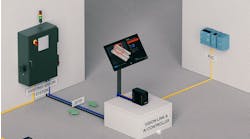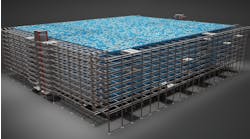While the Trans-Pacific Partnership (TPP) has been touted as a boost for manufacturing by opening up markets to the U.S., Kevin Kearns, president of the U.S. Business & Industry Council fells it’s “simply the latest in a long line of trade deals (like NAFTA, China, CAFTA, South Korea, etc.) that have opened the door to predatory trade with countries that have only their own interests at heart.”
Kearns explains:
If the past 20 years of “free trade” deals offer any preview, TPP won’t increase America’s sales to third world consumers, most of who exist on a few dollars a day and can’t afford U.S. wares. However, they can flood our already import-saturated market with more goods produced at slave labor wages. And so Congress should say no to President Obama’s request for “fast track” authority and the poorly conceived TPP agreement. Otherwise, U.S. manufacturers and their workers could be among the losers.
For example, Japan, Malaysia, Singapore, South Korea, and China continually engage in currency manipulation in order to gain an advantage for their exports.
In fact, Beijing has used an undervalued Yuan to boost its trade surplus with the U.S from $83 billion in 2001 to $342 billion in 2014, costing the U.S. more than 3 million jobs.
Similarly, Japan has intervened in currency markets 376 times since 1991 to increase exports.
This unbalanced trade has led to America no longer producing enough steel to supply its own defense and infrastructure needs.
More on the trade agreement on IndustryWeek.
IndustryWeek is an NED companion site within Penton’s Manufacturing & Supply Chain Group.










